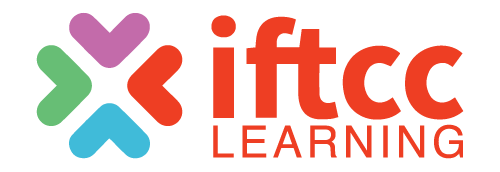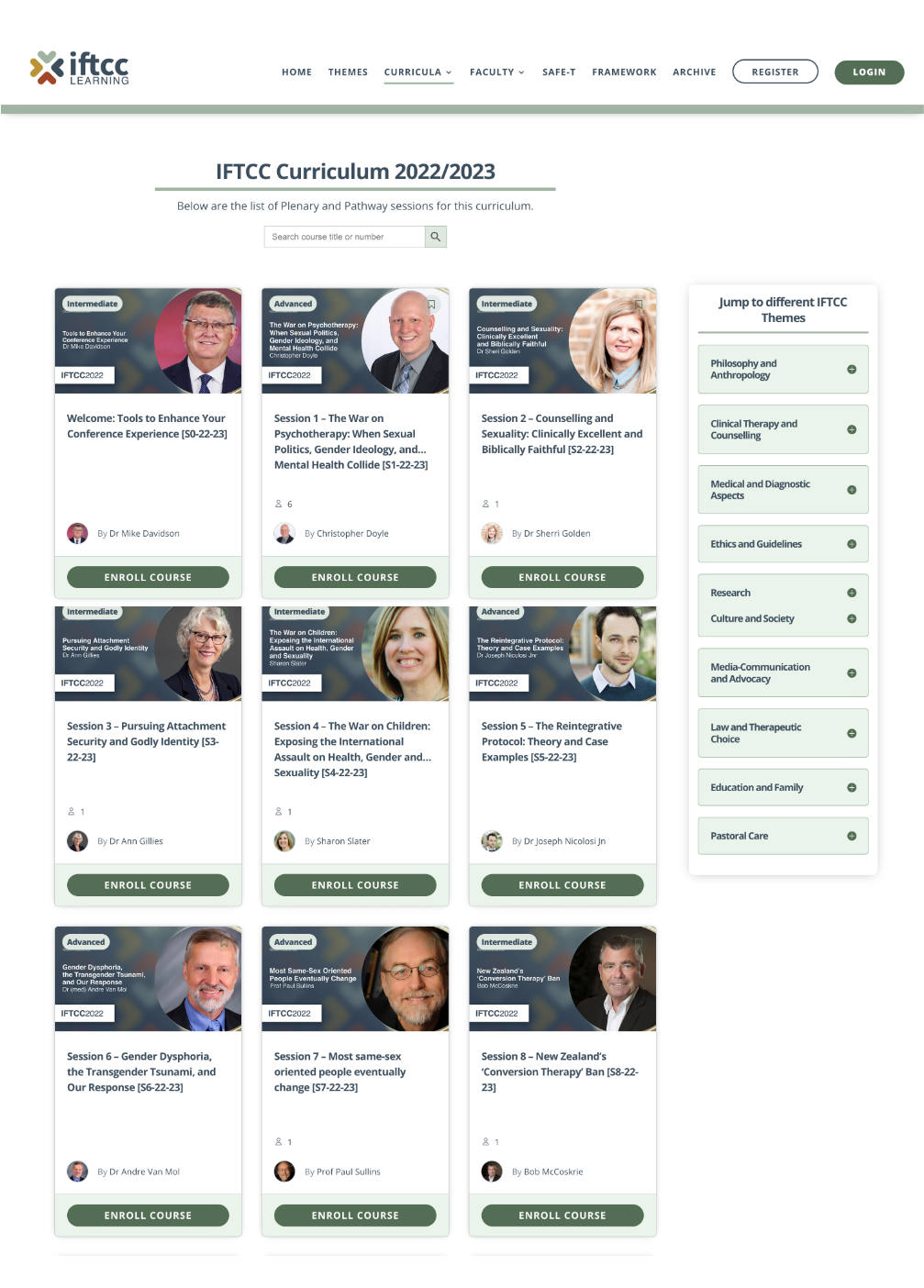The IFTCC Competency Framework Circle©
Below is the IFTCC Competency Framework Circle, based on the IFTCC’s Practise and Ethical Guidelines (PEG). Also highlighted at the centre of the Framework Circle are three Pivotal policy documents: (1) The Clinical Guidelines, (2) The Principles for Approaches to Transgender Treatments, and (3) The Pastoral Care Protocol. Also highlighted is the “SAFE-T” Protocol. This acronym stands for ‘Sexual Attraction Fluidity Exploration in Therapy’ developed by the Alliance for Therapeutic Choice and Scientific Integrity in 2016.
Our competency framework exists to train people in these important Guidelines Protocols and Guidelines . Note SAFE-T is not a therapy – it is a protocol, helping counsellors and therapists who work non-directively to explore the issues around sexual fluidity, and how these impact our lives.
Note that the Competency Framework Circle© has three learning Domains and these are explored at three levels: Basic (A) or beginner, Intermediate (B) and Advanced (C).
IFTCC Competency Framework Circle©
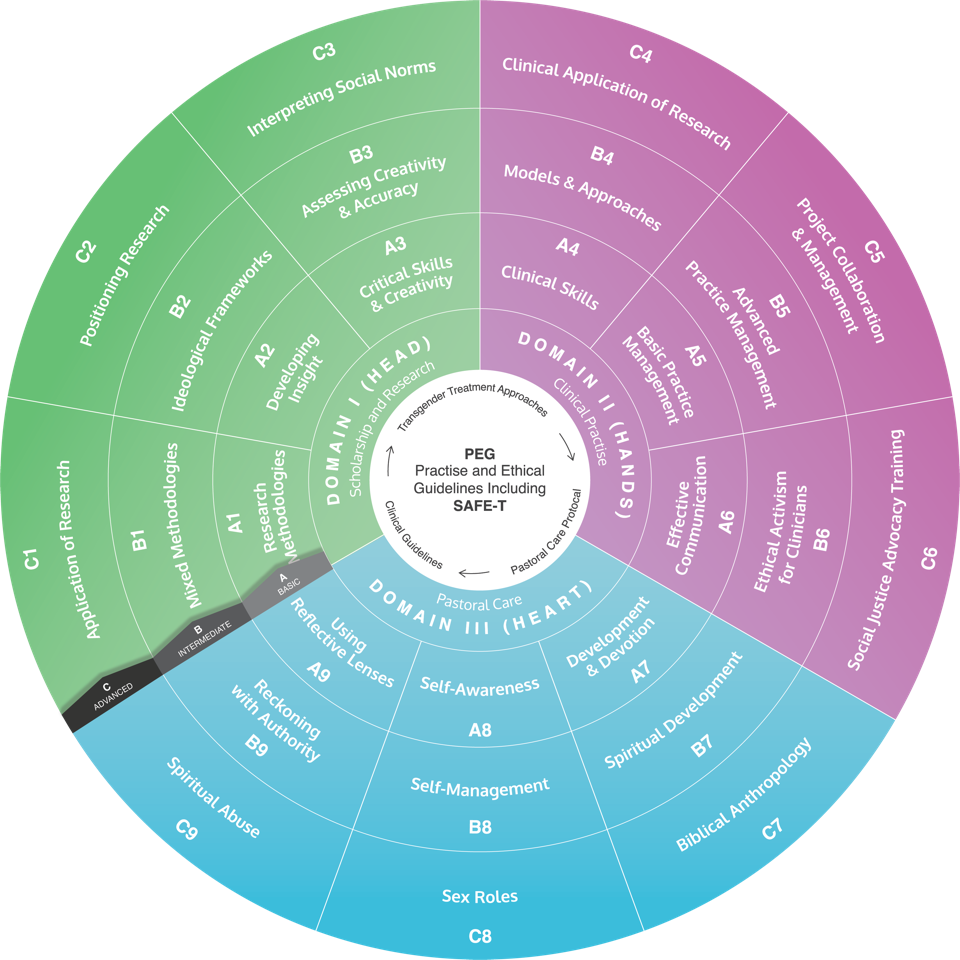
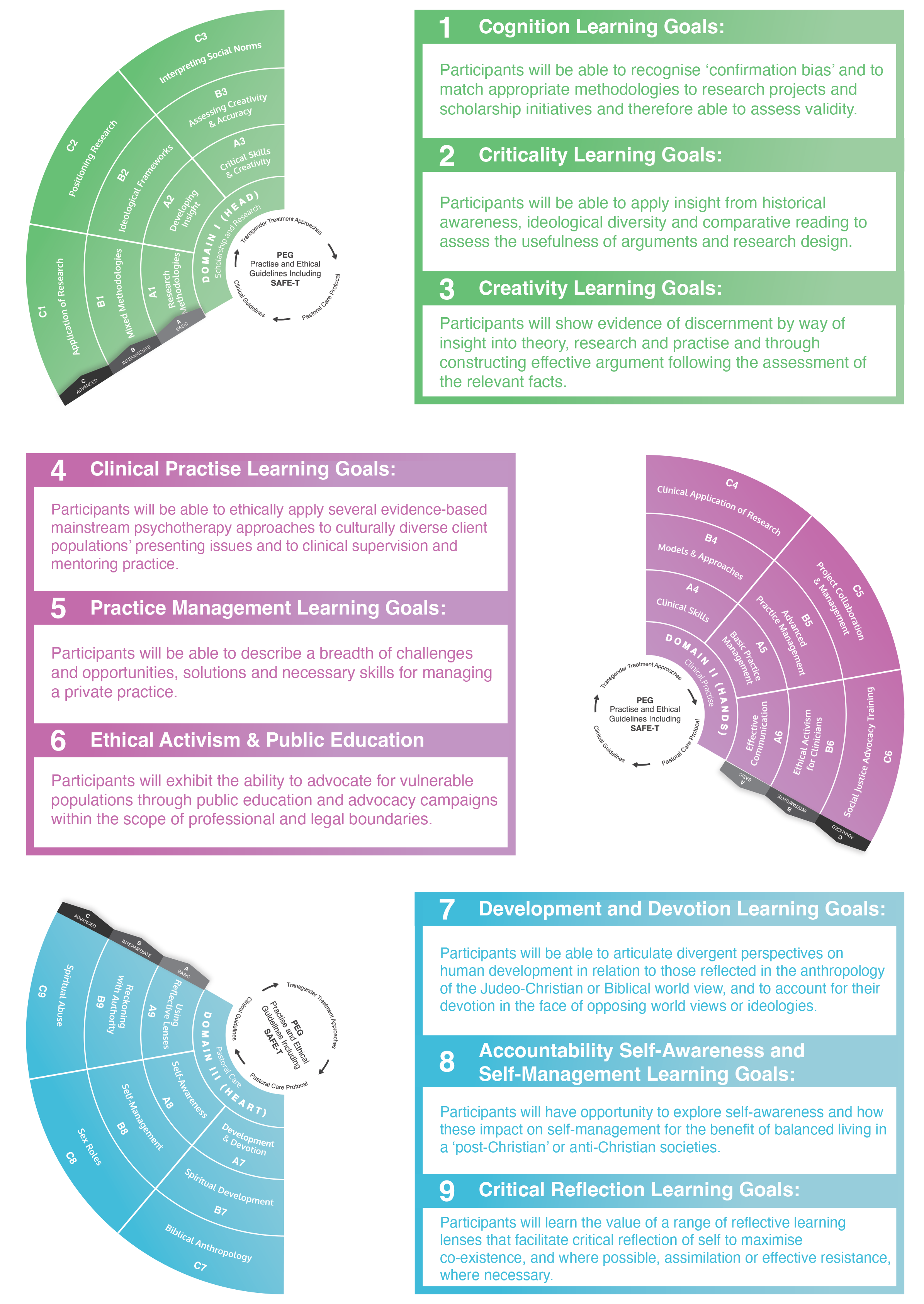
The IFTCC Competency Description Framework ©
The IFTCC Competency Framework Flowchart© explains the full range of competencies in greater detail.
The Context of the IFTCC Learning Platform
IFTCC Learning offers face-to-face information-giving and enquiry approaches at its annual conferences and occasional seminars. Site development is now in the process of improving the curriculum choices, by uploading materials from as far back as 2014.
Completing the 2023-24 Curriculum
The 2023-2024 curriculum is designed to cover the competencies in the three learning domains as reflected in the Competency Framework Table. This table provides the specific descriptions for each of the competencies. There are 9 competencies, in each of the three domains.
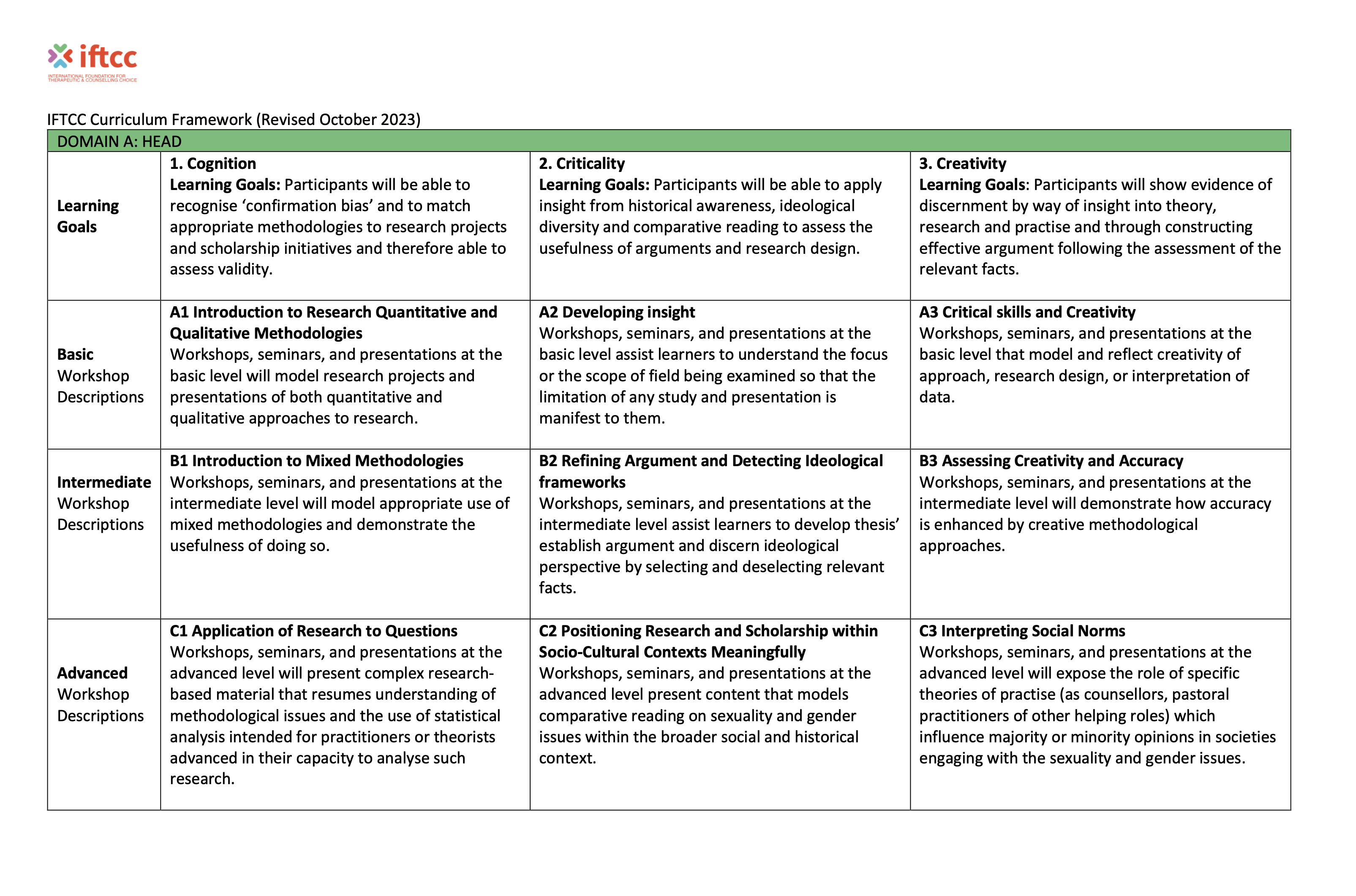
Who Makes the Rules About Awards?
The IFTCC Education and Training Council, led by Professor Carolyn Pela and Dr Mike Davidson, will take advice from members serving on this Council, regarding the structure and content of future awards. The Education and Training Council reports directly to the full board of the IFTCC Executive Council.
What are the Aims of IFTCC Learning and Recognised Provider Programme?
1. To provide further training for qualified counsellors and psychotherapists seeking to upskill their existing knowledge in the field.
2. To provide specific knowledge, current best-practise, research findings and understanding of the field of counselling and psychotherapy for those seeking to leave LGBT identities and practices.
3. To provide pastoral carers and persons of other helping disciplines with a structured approach to care, including the knowledge of when to refer persons to mental health professional services.
* The IFTCC does not seek to certify persons seeking qualifications in counselling or psychotherapy.
